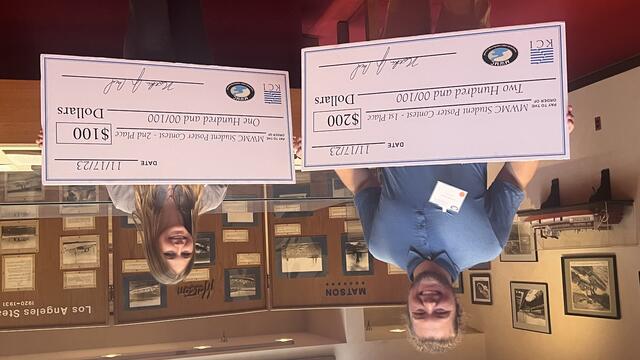Environmental Studies seniors awarded top prizes at annual statewide environmental conference
Two seniors majoring in Environmental Studies were awarded top prizes at the Maryland Water Monitoring Council’s Annual Conference held Nov. 17 at the Maritime Conference Center in Linthicum Heights, Maryland. Garrett Tucker’s research poster won first place and Olivia Sunde, who is also a double major in Biology, earned second place for her research poster at the conference.
